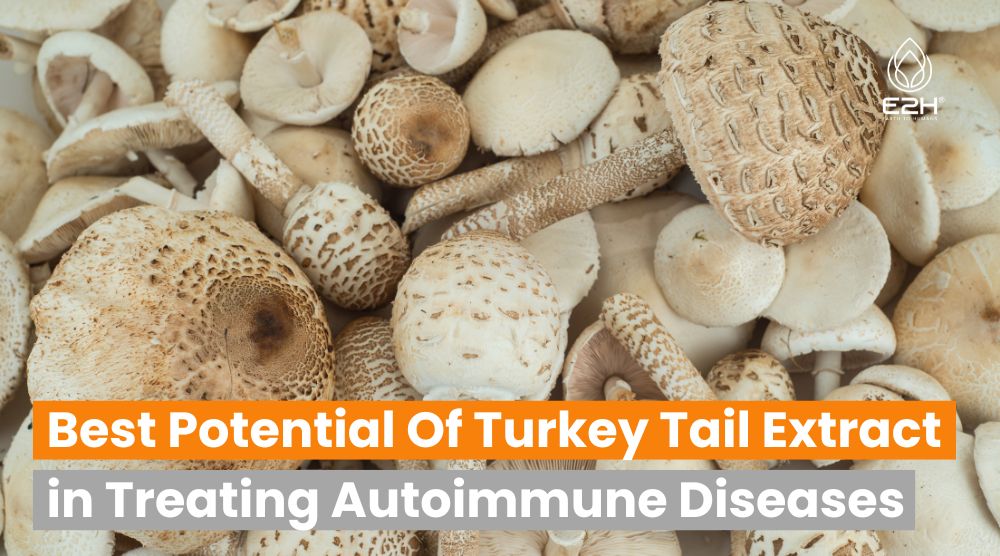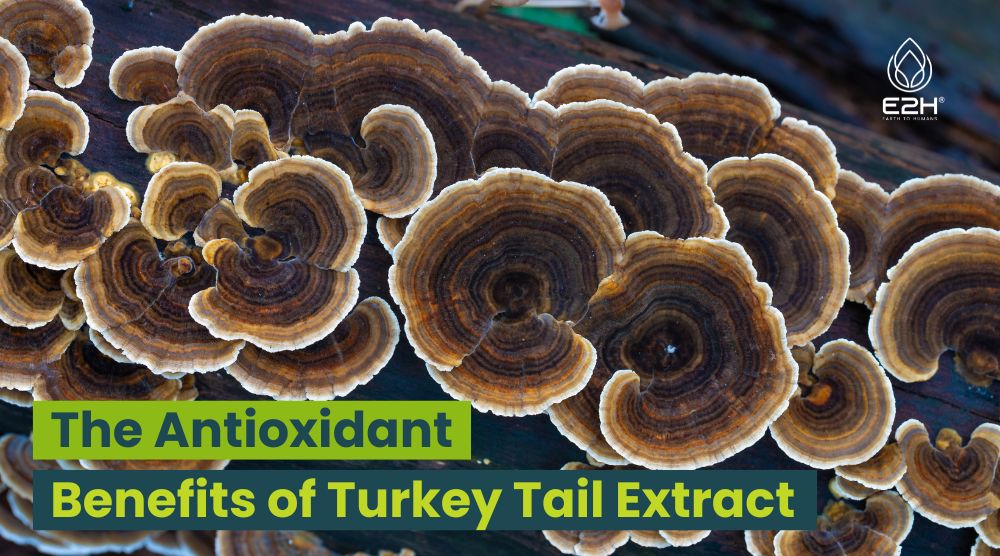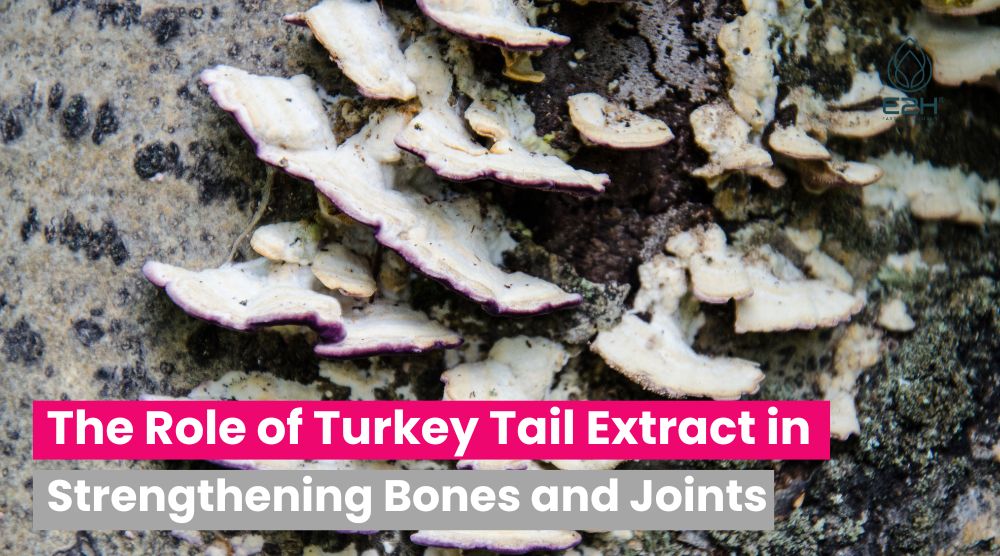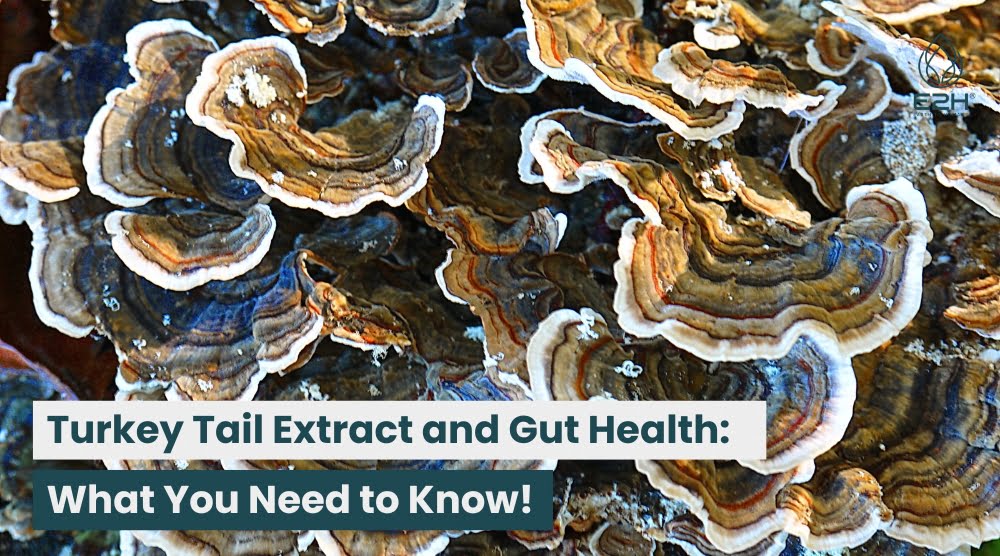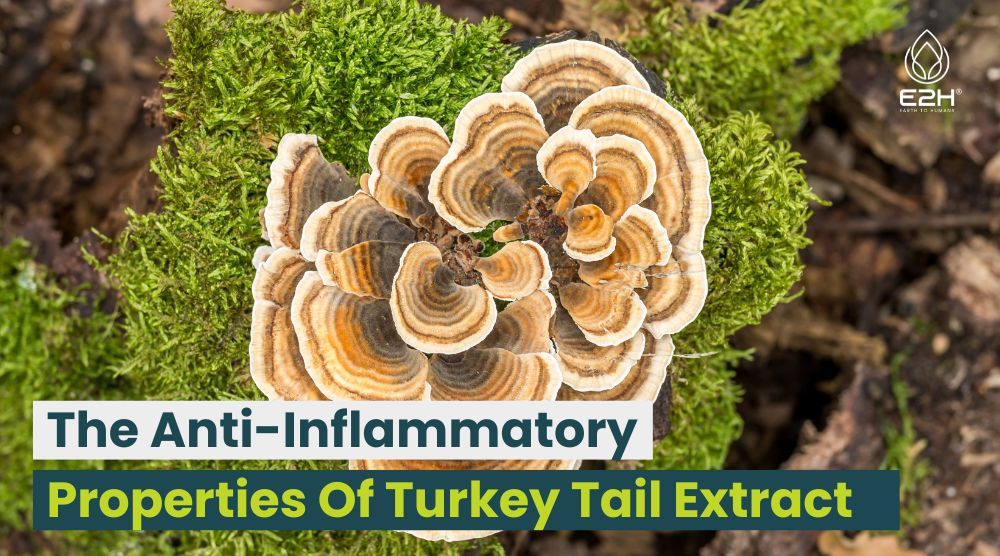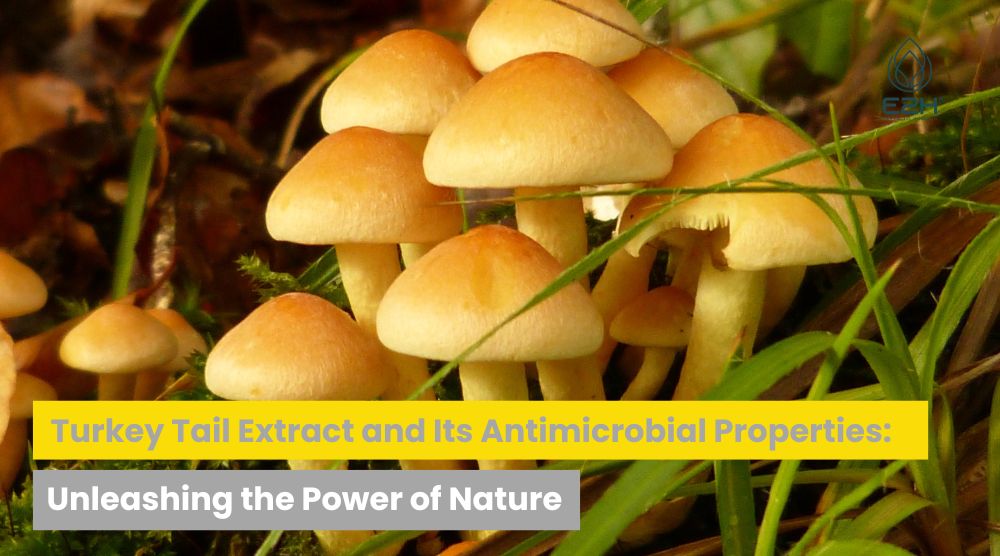Potential Of Turkey Tail Extract in Treating Autoimmune Diseases: Turkey Tail extract shows promise in treating autoimmune diseases due to its immunomodulatory and anti-inflammatory properties. Further research is needed to determine whether turkey tail may show its full potential as a complementary therapy for these conditions.
Understanding Autoimmune Diseases
Autoimmune diseases are a diverse group of disorders in which the immune system mistakenly attacks the body’s own healthy cells and tissues. These conditions can affect various organs and systems, including the joints, skin, and internal organs. The exact cause of autoimmune diseases is not fully understood, but a combination of genetic, environmental, and hormonal factors is believed to play a role.
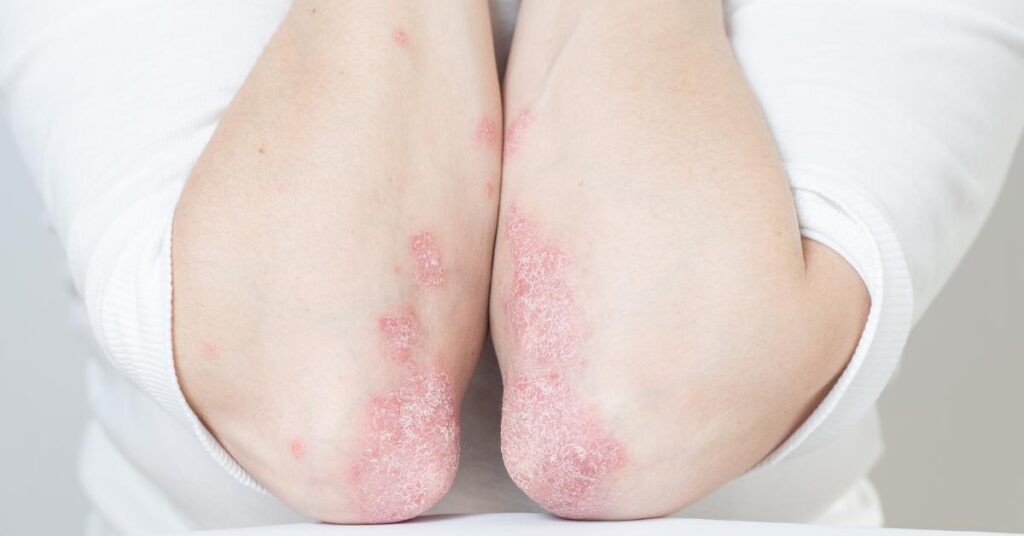
Autoimmune diseases often result in chronic inflammation, tissue damage, and a range of symptoms that can significantly impact a person’s quality of life. Diagnosis and management of autoimmune diseases require a multidisciplinary approach involving healthcare professionals specializing in rheumatology, immunology, and other relevant fields.
Introduction to Turkey Tail Mushroom
Turkey Tail mushroom, scientifically known as Trametes versicolor, is a medicinal mushroom with a long history of use in traditional Chinese and Japanese medicine. Its distinctive appearance, resembling the tail feathers of a turkey, gives it its common name. Turkey Tail mushroom is widely researched and known for its potential therapeutic properties.
It contains bioactive compounds such as polysaccharopeptides (PSPs) and polysaccharides, which have been studied for their immunomodulatory and anti-inflammatory effects. As interest in natural remedies for various health conditions grows, Turkey Tail mushroom has gained attention for its potential health benefits, in supporting the immune system, gut health and gut health and potentially aiding in the treatment of autoimmune diseases gastrointestinal cancer.
The Active Compounds in Turkey Tail Mushroom
Turkey Tail mushroom contains a diverse array of bioactive compounds that contribute to its potential therapeutic properties. Polysaccharopeptides (PSPs) and polysaccharides, particularly beta-glucans, are among the key active compounds found in Turkey Tail. These compounds have been extensively studied for their immunomodulatory effects, meaning they can help regulate the immune system’s response.
PSPs have shown promise in enhancing immune function and exerting anti-tumor activities. The polysaccharides present in Turkey Tail mushroom extract have demonstrated immune-enhancing and anti-inflammatory properties. The combination of these bioactive compounds makes Turkey Tail mushroom extracts a subject of interest for its potential role in against cancer cells supporting the immune system health and health and addressing autoimmune diseases.
Immunomodulatory Properties of Turkey Tail Extract
Turkey Tail extract possesses notable immunomodulatory properties. Studies have revealed its ability to modulate the immune system, promoting a balanced response and regulating immune reactions. This modulation is crucial in autoimmune diseases, where the immune system becomes dysregulated and attacks healthy cells and tissues. Turkey Tail extract has shown potential in restoring immune system equilibrium, potentially leading to a reduction in autoimmune-related symptoms.
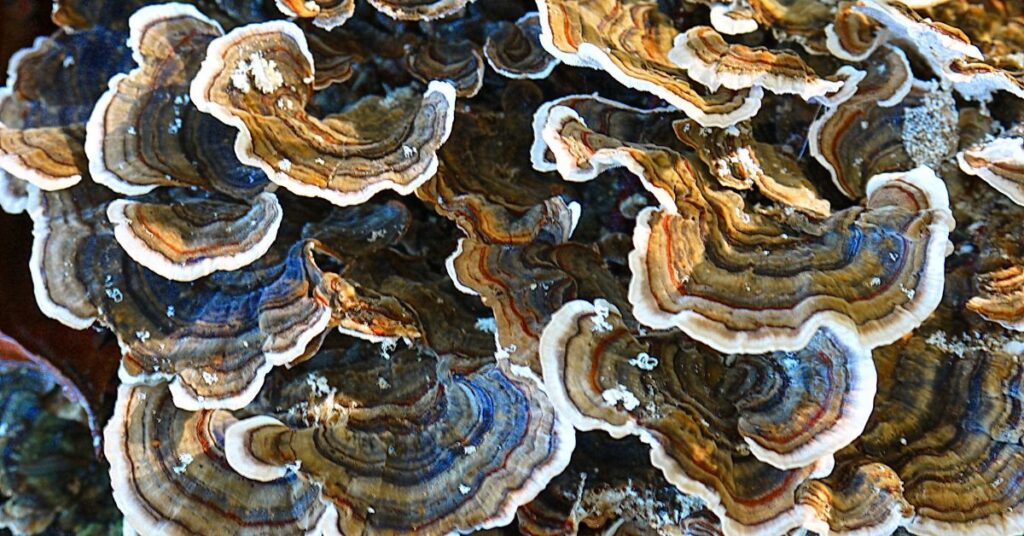
Its immunomodulatory effects are attributed to bioactive compounds like polysaccharopeptides (PSPs) and polysaccharides, which interact with immune cells and signaling pathways. The ability of Turkey Tail extract to regulate the immune response makes it a promising candidate for further investigation and as a complementary approach in autoimmune disease management.
Turkey Tail Extract and Inflammation Reduction
Turkey Tail extract exhibits notable anti-inflammatory properties, which make it a potential candidate for reducing inflammation associated with autoimmune diseases. Studies have shown that the bioactive compounds present in Turkey Tail extracts, such as polysaccharopeptides (PSPs) and polysaccharides, can inhibit pro-inflammatory molecules and signaling pathways.
By suppressing inflammation, Turkey Tail extract may help alleviate symptoms and mitigate tissue damage caused by chronic inflammation in autoimmune diseases. Its anti-inflammatory effects further contribute to its potential as a natural remedy in the management of these conditions.
Potential Effects of Turkey Tail Extract on Autoimmune Diseases
Research suggests that Turkey Tail extract may have potential effects on autoimmune diseases. The immunomodulatory and anti-inflammatory properties of Turkey Tail extract make it a promising candidate for managing these conditions. By regulating immune responses, it may help restore immune system balance and reduce the immune system’s attack on healthy cells and tissues.
Additionally, the anti-inflammatory effects of Turkey Tail extract can help alleviate symptoms associated with autoimmune diseases, such as pain and inflammation. While further research is needed to establish its efficacy and optimal usage, preliminary studies and anecdotal evidence indicate that Turkey Tail extract could potentially be a beneficial adjunct therapy in the treatment of autoimmune diseases.
Clinical Studies on Turkey Tail Extract
Several clinical studies have explored the effects of Turkey Tail extract on various health conditions, including cancer. While research specifically focused on autoimmune diseases is limited, some clinical trials have provided valuable insights. For instance, a randomized controlled trial published in the Journal of Clinical Oncology demonstrated that Turkey Tail extract, when used in combination with chemotherapy, improved immune response and increased survival rates in women with breast cancer.
Another study conducted at Bastyr University Research Institute observed that Turkey Tail extract supplementation enhanced immune function and quality of life in patients with advanced prostate and lung cancer in. Although these studies are not directly related to autoimmune diseases, they highlight potential health benefits of the immunomodulatory potential of Turkey Tail extract and pave the way for further investigation into its therapeutic efficacy for autoimmune conditions.
What are the potential risks and side effects of using turkey tail mushrooms for breast cancer?
When considering the use of turkey tail mushrooms for breast cancer treatment, it’s important to be aware of potential risks and side effects. While turkey tail mushrooms are generally well-tolerated, there have been isolated reports of allergic reactions in some individuals.
Additionally, if turkey tail mushrooms are used alongside chemotherapy or other cancer treatments, there is a theoretical risk of interactions or interference with the efficacy of the medications. It’s crucial to consult with a healthcare professional before incorporating the benefits of turkey tail mushrooms into your breast cancer treatment plan to ensure safety and optimal outcomes.
Does turkey tail help with autoimmune disease?
Turkey tail mushrooms have shown potential in aiding autoimmune diseases due to their immunomodulatory and anti-inflammatory properties. While research on their direct effects on autoimmune diseases is still limited, studies have demonstrated their ability to regulate the immune system and reduce inflammation.
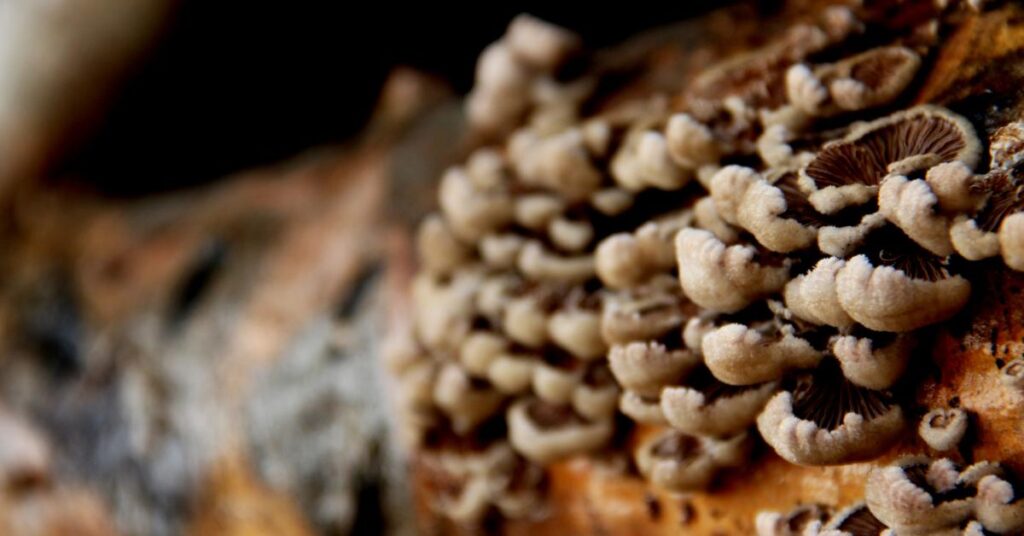
This suggests that consuming turkey tail mushroom or mushrooms may have a positive impact on autoimmune diseases by restoring immune balance and alleviating symptoms. However, further research is necessary to fully understand their efficacy and determine optimal usage for specific autoimmune conditions. Consulting with a healthcare professional is advised before incorporating any turkey, edible mushrooms, medicinal mushrooms, or summary turkey tail mushroom supplement into an autoimmune disease treatment plan.
What are the negative effects of turkey tail?
Turkey tail mushrooms are generally considered safe for consumption. However, in some cases, individuals may experience allergic reactions, such as skin rashes or gastrointestinal discomfort. It is important to note that interactions with certain medications, particularly immunosuppressive drugs, are possible.
Additionally, the quality and purity of the turkey tail mushroom product may vary, so it is important to source it from reputable suppliers. As with any dietary supplement or herbal remedy, it is advisable to consult with a healthcare professional before using turkey tail mushrooms, especially if you have underlying health conditions or are taking other medications.
How long does it take for turkey tail to work?
The timeframe for turkey tail to show noticeable beneficial effects and can vary depending on multiple factors, including the individual’s health condition, the severity of the condition, and the dosage and quality of the the turkey tail supplement product used. Generally, it may take several weeks to a few months of consistent use to observe potential benefits.
However, it’s important to note that individual responses to turkey tail benefits can vary, and some individuals may experience faster or slower results. It is advisable to consult with a healthcare professional for personalized guidance on the expected timeline for using a turkey tail supplement for specific health concerns.
Is turkey tail mushroom hard on the liver?
There is limited evidence to suggest that turkey tail mushrooms are hard on the liver. In general, turkey tail mushrooms are considered safe for consumption, and adverse effects of turkey tail mushrooms, turkey tail may, or turkey tail may fungus on liver function have not been widely reported.
However, as with any dietary supplement or herbal remedy, it is important to use them responsibly and in moderation. If you have pre-existing liver conditions or concerns poor liver function, it is advisable to consult with a healthcare professional before using turkey tail may or incorporating any turkey tail fungus or turkey tail mushrooms grow up into your regimen to ensure safety and optimal liver health.
Turkey Tail Extract Can Offer Support to Chemo Patients?
Turkey Tail extract has shown potential in offering support to chemotherapy patients. Studies have indicated that when used alongside conventional chemotherapy, Turkey Tail extract can enhance immune response to cancer cells and potentially improve survival rates. It may also help mitigate the adverse effects of chemotherapy, such as immune suppression and reduced quality of life.

However, it’s important to note that further research is needed to fully understand the extent of its supportive effects in cancer patients and determine the optimal dosage and timing for incorporating Turkey Tail extract into chemotherapy regimens. Consulting with a healthcare professional is recommended for personalized guidance.
Turkey Tail Mushrooms May Stimulate Cognitive Function
While research specifically focused on cognitive function and the benefits of turkey tail and mushrooms is limited, some studies suggest potential side benefits of turkey tail mushrooms may mushroom extracts alone. Turkey tail mushrooms may contain bioactive compounds, including polysaccharopeptides (PSPs), which have shown immunomodulatory properties. There is evidence that immune system dysregulation may impact cognitive function.
By promoting immune system balance, turkey tail mushrooms could indirectly support cognitive health. However, further research is necessary to fully understand the direct effects and mechanisms of how turkey tail mushrooms may have on cognitive function. It is important to consult with a healthcare professional before using turkey tail mushroom supplement or mushrooms for cognitive enhancement purposes.
Amelia’s Turkey Tail Tea | Live Free or Die: How to Homestead
FAQs
Is Turkey Tail extract safe to consume?
Turkey Tail extract is generally considered safe for consumption, and adverse effects are rare. However, it’s always advisable to consult with a healthcare professional before starting any new supplement, or alternative medicine, especially if you have underlying health conditions or are taking other medications.
Can Turkey Tail extract replace conventional treatments for autoimmune diseases?
Turkey Tail extract should not be considered a replacement for conventional treatments. Instead, it may serve as a complementary therapy, potentially helping to alleviate symptoms and support the immune system. It’s essential to work closely with your healthcare provider to develop a comprehensive treatment plan.
How should Turkey Tail extract be consumed?
Turkey Tail extract is commonly available in the form of capsules, powders, or tinctures. The appropriate dosage may vary, so it’s best to follow the instructions provided by the manufacturer or consult a healthcare professional for personalized guidance.
Are there any potential interactions with medications?
Turkey Tail extract may interact with certain medications, particularly immunosuppressive drugs or anticoagulants. It’s crucial to inform your healthcare provider about any supplements you’re taking to ensure there are no contraindications or adverse interactions.
Conclusion
Autoimmune diseases pose significant challenges for patients and healthcare providers, and exploring alternative treatment options is crucial. Turkey Tail extract, with its immunomodulatory and anti-inflammatory properties, holds promise as a natural adjunct therapy for autoimmune diseases. While more research is needed to fully understand its efficacy and optimal usage, early studies suggest that Turkey Tail extract may provide several health benefits, by balancing immune responses, reducing inflammation, and improving overall the gut microbiome and gut health.
